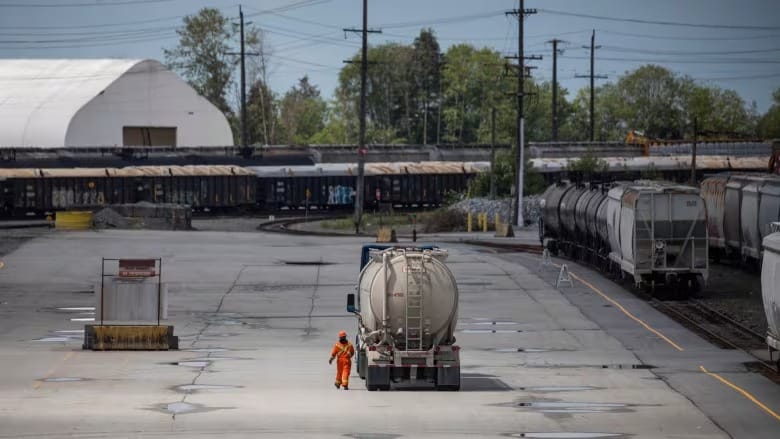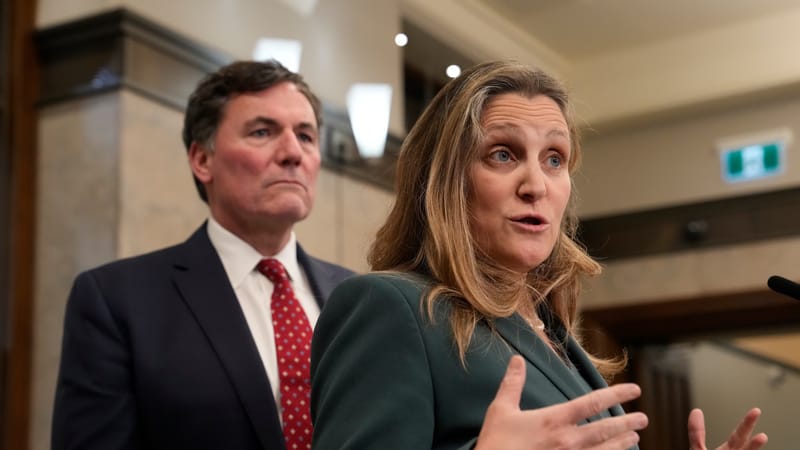Canada refusing entry to more foreigners, giving fewer visas: data
Canadians have prided themselves on embracing newcomers but polls show a growing number say Canada is admitting too many immigrants. That stance is filtering down to border and immigration officers, observers say.

Canada is increasingly tightening its borders by approving fewer visas and turning away more travelers, according to government data obtained by Reuters. This shift comes as Prime Minister Justin Trudeau's Liberal government, facing declining poll numbers ahead of next year's expected election, attempts to reduce the number of temporary residents and possibly permanent immigrants. Migrants have been cited as a factor contributing to the housing shortage and rising prices.
While Canadians have traditionally been welcoming to newcomers, recent polls indicate a growing sentiment that the country is admitting too many immigrants. This attitude appears to be influencing decisions made by border and immigration officers.
In July, Canada denied entry to 5,853 foreign travelers, including students, workers, and tourists—the highest number since at least January 2019, according to previously unreported data from the Canada Border Services Agency (CBSA). On average, border officers turned away 3,727 travelers per month in the first seven months of 2024, representing a 20 percent increase from the previous year.
Additionally, in July, 285 visa holders were deemed inadmissible—the highest monthly figure since at least January 2019.
A CBSA spokesperson explained that changes in inadmissibility findings could be due to shifts in migration patterns or policy changes, but did not specify any particular policy adjustments. The spokesperson emphasized that the CBSA's role in assessing the admissibility of persons entering Canada remains unchanged.
At the same time, Canada's immigration department has been approving fewer visas. The ratio of refused visitor visa applications to approved ones reached its highest point in June since the height of the pandemic. In January, February, May, and June 2024, more visa applications were refused than approved. The number of approved study and work permits also decreased from multi-year highs in 2023 and 2022, respectively.
"Canadians want a system that is not out of control," said Immigration Minister Marc Miller in August. His spokesperson added that the immigration department is committed to fair and non-discriminatory application of immigration policies and procedures. The decline in study permit approvals was attributed to a cap announced in January, although the trend appears to have started last year.
Eight lawyers told Reuters they have received reports from clients about increased scrutiny of visa holders at airports and land border crossings. British Columbia lawyer Will Tao said he has represented several visa holders who were questioned by border officials about their plans in Canada and were advised to return voluntarily or risk deportation. Some did so, unaware of the potential consequences for their visas or travel authorizations.
Tao believes this increased skepticism among border officers reflects a "180-degree" shift in the government's attitude toward immigration. He noted that the notion that foreigners are entering Canada without meeting requirements or causing harm is being conveyed by politicians and is influencing front-line officials.
Mohammed Kamil Shaibu, a Ghanaian traveler, experienced this firsthand when he was stopped while waiting to board a connecting flight from Paris to Toronto last September. He was questioned over the phone by a Canadian immigration officer about his employment, the purpose of his trip, and the assistance he received in filing his tourist visa application. Confused and terrified, Shaibu was told he could not proceed to Canada and was sent back to Accra. He received an email stating, "Your temporary-resident visa is no longer valid for travel to Canada."
Gideon Christian, an assistant law professor at the University of Calgary, criticized the practice, saying, "Why accept people if, when they come, you're not going to admit them?"
Despite his experience, Shaibu remains positive about Canada, describing it as a "very nice place made up of very nice and accommodating and hospitable people." He says he may even attempt to visit again in the future.





